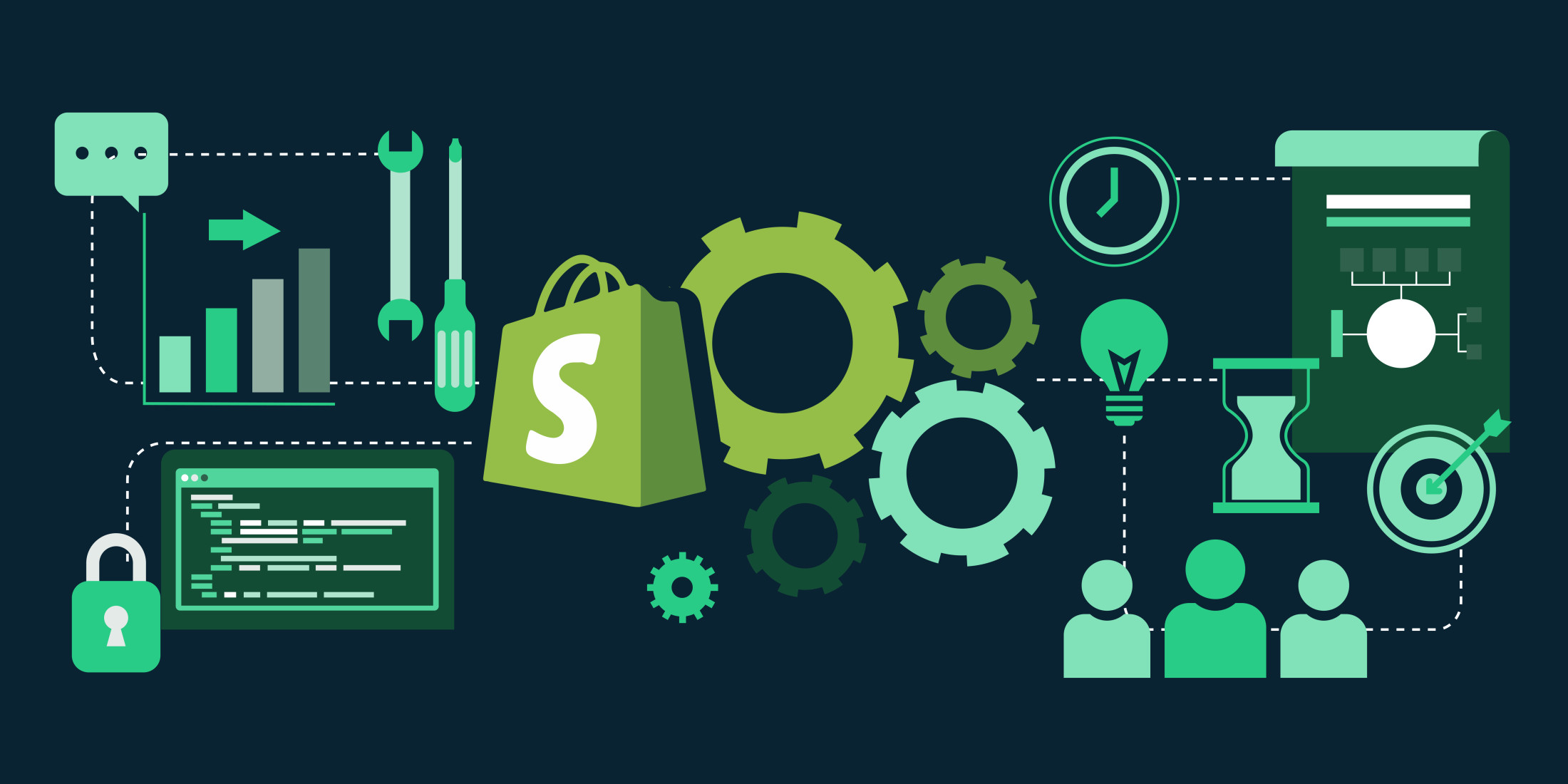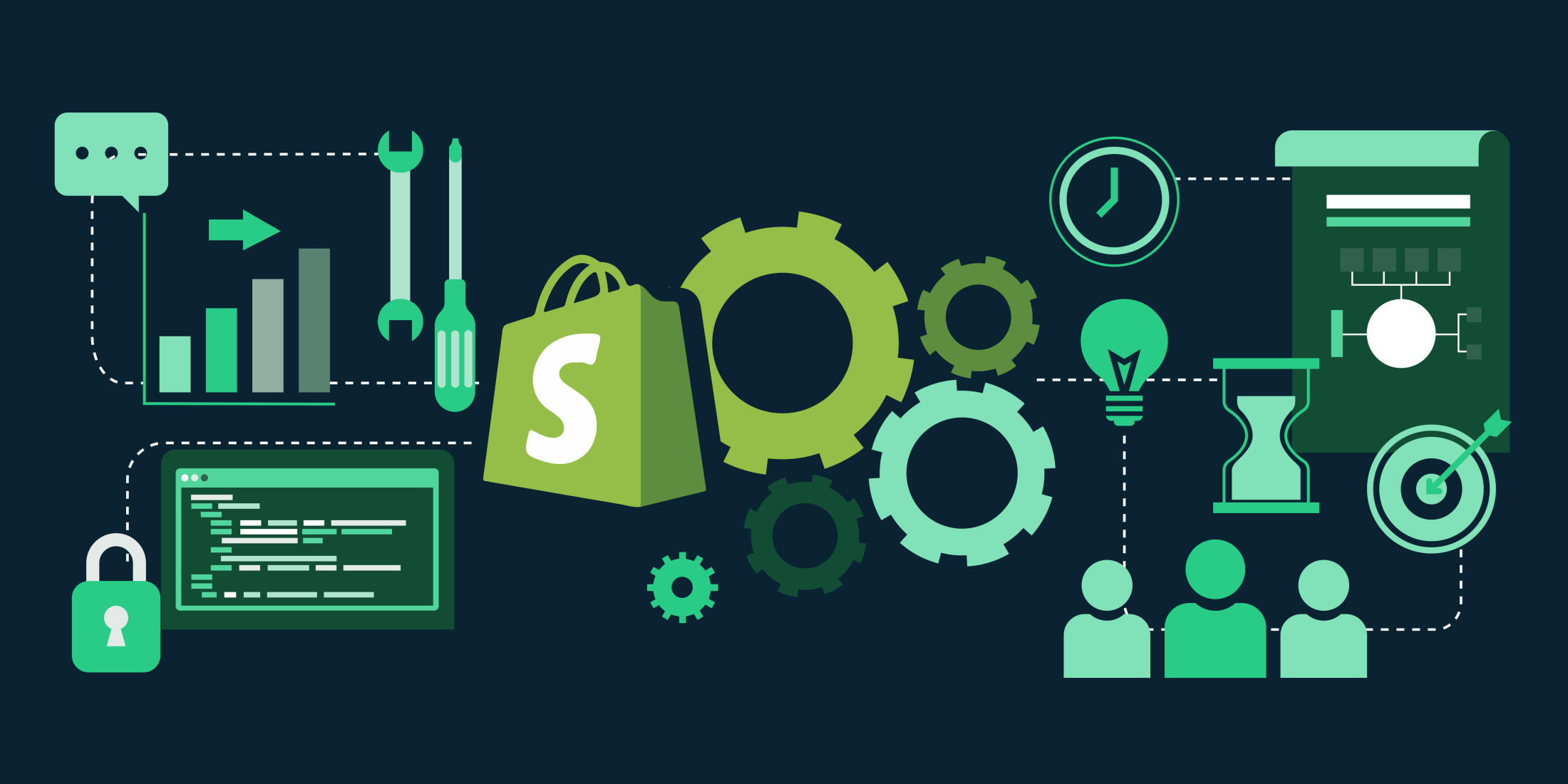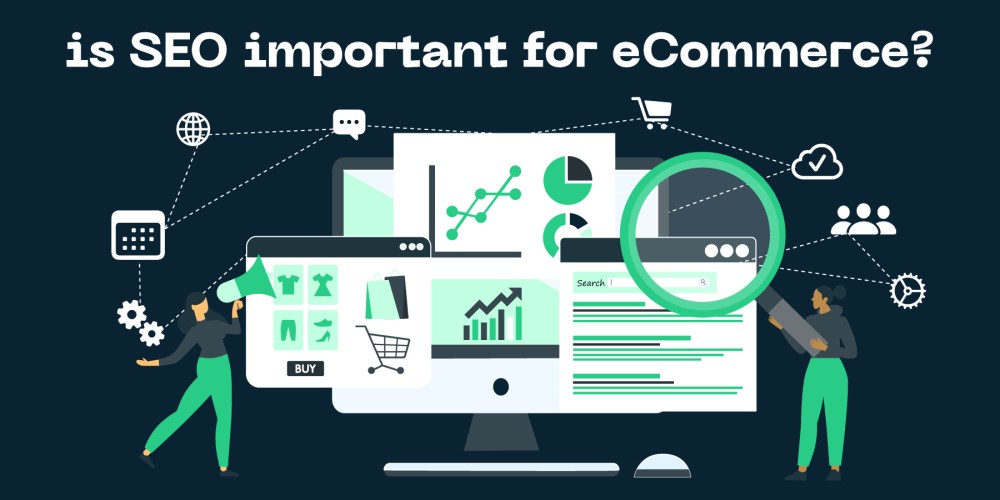How do AI agents work in simple terms

Key Takeaways
- Understanding AI Agents: Discover how simple AI agents function in eCommerce and their role in automating tasks efficiently.
- Boosting Business Performance: Learn how AI agents can enhance conversion rates and optimize marketing efforts for better results.
- SEO and Analytics Integration: See how AI agents improve SEO strategies and integrate seamlessly with analytics tools to provide insightful data.
- Privacy and Integration Considerations: Understand the challenges and key considerations when integrating AI agents, including data privacy concerns.
- Future Trends: Explore exciting developments in AI-driven personalization and predictive analytics that are shaping the future of eCommerce.
- ConvertMate is your go-to solution for harnessing the power of AI agents to optimize your eCommerce marketing strategy.
Understanding AI Agents in eCommerce
Defining AI Agents
In the realm of eCommerce, AI agents serve as intelligent intermediaries that can autonomously perform tasks, make decisions, and interact with customers or systems to optimize operations. At their core, these agents are computer programs designed to understand, learn, and act upon data, replicating human decision-making processes to enhance efficiency and effectiveness. For an online store owner, integrating AI agents can mean the difference between stagnation and growth. By employing these agents, businesses can not only automate repetitive tasks but also harness data-driven insights to refine marketing strategies, personalize customer experiences, and ultimately, increase conversion rates.
The functionality of AI agents in eCommerce can be broken down into several key areas: customer interaction, data analysis, and operational automation. Customer interaction agents, such as chatbots, handle inquiries and support requests, providing instant responses and solutions. This not only improves customer satisfaction but also frees up human resources for more complex tasks. Meanwhile, AI-driven data analysis agents sift through vast amounts of data to identify trends and consumer behaviors that would be challenging for humans to detect manually. They can predict purchasing patterns, suggest products, and even tailor marketing messages to individual preferences, making marketing efforts more targeted and effective.
Operational automation is another critical aspect where AI agents shine. They streamline processes such as inventory management, order processing, and supply chain logistics, reducing human error and increasing efficiency. For marketers and store owners, the implementation of AI agents translates to a more agile business operation that can quickly adapt to market changes and consumer demands. In essence, AI agents are revolutionizing the eCommerce landscape by providing tools that transform data into actionable insights, driving sales, and fostering an enhanced customer experience.
How AI Agents Function
AI agents are revolutionizing the eCommerce landscape by offering advanced solutions that streamline processes and enhance customer experiences. At their core, AI agents are software programs designed to perform tasks autonomously based on data analysis and pattern recognition. These agents use algorithms to understand user behavior, predict future actions, and make recommendations, thus helping eCommerce businesses optimize their operations. By leveraging machine learning, these agents continually improve their performance over time, becoming more accurate and efficient in performing their assigned tasks. This capability is particularly crucial for eCommerce store owners and marketers aiming to increase conversion rates, as AI agents can provide personalized experiences that resonate with individual customers.
One of the key functionalities of AI agents in eCommerce is their ability to analyze vast amounts of data quickly and accurately. They can process customer interactions, purchase history, and browsing behavior to develop intricate user profiles. With this information, AI agents can deliver personalized product recommendations, targeted promotions, and even dynamic pricing strategies. Such personalization ensures that customers feel valued and understood, which can significantly boost conversion rates. Furthermore, AI agents can automate customer support through chatbots, offering instant assistance and reducing workload on human staff. This not only improves customer satisfaction but also allows businesses to focus on strategic growth activities.
For eCommerce store owners, integrating AI agents presents a strategic opportunity to remain competitive in an increasingly digital market. The insights gained from AI-driven data analysis can inform marketing strategies and inventory management, ensuring that the right products are promoted to the right audience at the right time. Moreover, as AI technology continues to advance, its potential applications in eCommerce will only expand, offering even more sophisticated tools for enhancing customer engagement and boosting sales. Investing in AI agents can thus be seen as a forward-thinking approach that not only addresses current challenges but also prepares businesses for the future of retail.
Benefits of AI Agents for eCommerce
Boosting Conversion Rates
In the ever-evolving landscape of eCommerce, leveraging AI agents can be a game-changer for boosting conversion rates. At their core, AI agents are sophisticated algorithms designed to analyze data and learn from it, enabling them to make decisions or predictions with minimal human intervention. For eCommerce store owners, this means AI agents can provide a personalized shopping experience by analyzing customer behavior, preferences, and purchase history. This personalized approach can significantly enhance the shopping experience, making customers more likely to complete a purchase.
One of the key benefits of AI agents in the eCommerce sector is their ability to operate continuously and at scale. Unlike human employees, AI agents can process large volumes of data in real-time, offering insights and recommendations to users at any hour of the day. This ability to manage and analyze vast amounts of data means that AI agents can identify patterns and trends that might not be visible through manual analysis. For marketers seeking to increase conversion rates, this translates into timely and relevant product recommendations, dynamic pricing strategies, and personalized marketing messages that resonate with potential buyers.
Moreover, AI agents can streamline and optimize various aspects of the customer journey. From intelligent chatbots providing instant customer support to AI-powered search engines delivering more accurate search results, these technologies help remove friction points that often lead to cart abandonment. By improving the overall efficiency and effectiveness of the online shopping experience, AI agents not only drive higher conversion rates but also contribute to greater customer satisfaction and loyalty. Embracing AI-driven solutions can thus be a strategic move for eCommerce businesses aiming to stay competitive and capitalize on emerging market trends.
Enhancing SEO Strategies
AI agents are revolutionizing the digital landscape by offering advanced capabilities that can significantly enhance SEO strategies for eCommerce businesses. These intelligent tools analyze massive amounts of data faster and more accurately than a human could, identifying patterns and opportunities that might otherwise go unnoticed. For eCommerce store owners, leveraging AI agents can mean the difference between a website that merely exists and one that thrives in a competitive market. By understanding customer behavior, search trends, and content performance, AI agents can inform and adapt SEO strategies in real-time, making them more effective and targeted.
One of the primary benefits of integrating AI agents into your SEO strategy is the ability to personalize customer experiences on a granular level. AI agents can tailor content and recommendations to individual users based on their browsing history, demographics, and preferences, thereby increasing the likelihood of conversion. This personalized approach not only enhances customer satisfaction but also boosts the site's relevance in search engine rankings. As AI agents continue to evolve, they will become even more adept at predicting market trends and consumer needs, allowing eCommerce stores to stay ahead of the curve and maintain a competitive edge.
Moreover, AI agents can automate several aspects of SEO management, freeing up valuable time and resources for eCommerce marketers. Tasks such as keyword research, competitor analysis, and performance tracking can be streamlined, reducing the workload on human teams and allowing them to focus on more strategic initiatives. As the eCommerce landscape becomes increasingly complex, the agility and efficiency provided by AI agents could prove indispensable for businesses looking to optimize their online presence and drive higher conversion rates. Overall, the integration of AI agents into SEO strategies represents a significant step forward in digital marketing, offering eCommerce businesses the tools they need to compete and succeed in today's fast-paced market.
Integration of AI Agents with Existing Tools
Analytics Tools Integration
Integration of AI agents with existing tools is a crucial step for any ecommerce store owner or marketer aiming to boost conversion rates effectively. AI agents can seamlessly collaborate with platforms like CRM systems, email marketing software, and customer service tools, delivering a more personalized and engaging experience for potential customers. By integrating these intelligent systems, businesses can leverage data-driven insights to hone their marketing strategies, predict customer behavior, and tailor product recommendations. This symbiotic relationship between AI agents and existing tools is not just about adding technology into the mix; it is about enhancing the capabilities of current platforms to create a more cohesive and efficient operational ecosystem.
For ecommerce marketers, the integration of AI agents involves understanding how these systems can optimize the customer journey. AI can analyze vast amounts of data to identify patterns and trends that would be impossible for humans to discern quickly. By aligning AI insights with existing tools, marketers can automate tasks such as personalized email campaigns, dynamic pricing adjustments, and real-time customer support. This not only saves time but also ensures a consistent and contextually relevant interaction with customers, which is crucial for maintaining high conversion rates.
However, it is essential to approach this integration thoughtfully. While the potential benefits are significant, successful implementation requires careful planning and consideration of the specific needs of your ecommerce business. AI tools must be chosen and configured to align with your existing systems while also being scalable to accommodate future growth. By investing the time and resources to integrate AI agents effectively, ecommerce store owners can create a more intelligent and responsive suite of tools that not only increase conversion rates but also enhance overall customer satisfaction.
Shopping Platforms Integration
The integration of AI agents with existing tools in shopping platforms offers a transformative opportunity for eCommerce store owners and marketers. By leveraging AI, these platforms can provide a more personalized shopping experience, optimize operations, and ultimately increase conversion rates. AI agents can analyze vast amounts of data in real-time, discerning patterns and customer preferences that might be missed by human oversight. This ability to process and interpret data quickly enables eCommerce businesses to tailor their marketing strategies and product recommendations more effectively, enhancing customer satisfaction and fostering loyalty.
For eCommerce professionals looking to optimize their platforms, the seamless integration of AI agents with existing tools is crucial. These AI agents can work alongside current systems such as customer relationship management (CRM) software, inventory management systems, and analytics tools. By doing so, they enhance the capabilities of these systems, providing insights that drive more informed decision-making. The synergy between AI agents and these tools can result in a more responsive and agile business model, essential in the fast-paced world of online retail. For example, AI-driven chatbots integrated into customer service channels can improve response times and provide personalized support, leading to higher customer satisfaction and increased sales.
Moreover, AI agents can assist in automating routine tasks, freeing up valuable time for marketers to focus on creative strategies that drive growth. Through their integration with existing tools, AI agents can streamline processes such as inventory management, pricing optimization, and customer segmentation. This not only reduces operational costs but also enhances the agility of marketing campaigns, allowing for real-time adjustments based on consumer behavior and market trends. For eCommerce store owners, the adoption of AI-powered integrations is not just about keeping up with technological advancements; it’s about gaining a competitive edge in an increasingly crowded marketplace. By embracing these innovations, store owners can ensure they provide the most efficient and engaging shopping experience possible.
Challenges and Considerations
Data Privacy Concerns
As AI agents become more integrated into e-commerce platforms and marketing strategies, data privacy concerns have become a critical challenge and consideration for store owners and marketers. These AI systems often require vast amounts of consumer data to function optimally, delivering personalized experiences and recommendations that can significantly boost conversion rates. However, this necessity for data brings about the challenge of ensuring that consumer information is handled responsibly and ethically. Store owners must navigate complex privacy regulations, such as the GDPR in Europe or the CCPA in California, which mandate stringent data protection measures and transparency in how data is collected, stored, and utilized.
Moreover, the implementation of AI agents in e-commerce involves considerations about the scope and limits of data collection. While more data can mean better AI performance, there is a fine line between beneficial personalization and invasive tracking. Consumers are increasingly aware of privacy issues and are demanding more control over their personal information. This shift in consumer attitudes requires businesses to be transparent about their data practices and to offer robust privacy settings. Failing to do so can result in loss of trust, potential legal repercussions, and ultimately, a negative impact on conversion rates.
In conclusion, while AI agents offer powerful tools for enhancing e-commerce experiences, the challenges associated with data privacy cannot be overlooked. Store owners and marketers should prioritize building trust with their customers by adopting privacy-first approaches. This involves not only compliance with legal standards but also proactive measures like clear communication about data usage, minimizing data collection to what is absolutely necessary, and investing in secure data management practices. Balancing the benefits of AI with a commitment to privacy can foster a more loyal customer base and drive sustainable business growth.
Ensuring Seamless Integration
Integrating AI agents into an e-commerce platform presents a unique set of challenges and considerations that store owners and marketers must carefully navigate. One of the primary challenges lies in the compatibility of AI systems with existing technological infrastructures. Many e-commerce platforms operate on legacy systems that may not easily support modern AI technologies. As a result, a seamless integration requires not only technical expertise but also strategic planning to ensure that AI agents can effectively communicate with existing systems without causing disruptions. This often involves assessing current IT capabilities and making necessary upgrades, which could be resource-intensive and time-consuming.
Another significant consideration is data management. AI agents rely on vast amounts of data to function effectively, learning from customer behaviors and preferences to provide personalized experiences. However, e-commerce businesses must ensure that their data collection and storage practices comply with data protection regulations such as GDPR or CCPA. Inadequate data security measures can lead to breaches, risking both customer trust and potential legal consequences. Therefore, it’s crucial for store owners and marketers to implement robust data governance frameworks that allow AI agents to access and process data securely and ethically.
Finally, the human factor should not be overlooked in the integration process. Employees may need training to utilize AI tools effectively, and there might be resistance to change from staff accustomed to traditional processes. It’s essential for businesses to foster a culture of adaptation and continuous learning, helping employees understand the benefits of AI integration in enhancing customer experiences and driving conversion rates. By addressing these challenges thoughtfully, e-commerce businesses can create a seamless integration of AI agents, ultimately leading to improved operational efficiency and increased customer satisfaction.
Future Trends in AI Agents for eCommerce
AI-Driven Personalization
AI-driven personalization is rapidly emerging as a key trend in the field of eCommerce, revolutionizing the way businesses interact with customers. At its core, AI-driven personalization involves the use of artificial intelligence to tailor the shopping experience to individual users. By analyzing vast amounts of data, AI agents can deliver highly relevant product recommendations, predictive pricing models, and personalized marketing messages that resonate with each consumer. This not only enhances customer satisfaction but also significantly boosts conversion rates, making it an essential strategy for eCommerce store owners and marketers who aim to stay competitive in the digital marketplace.
One of the primary reasons AI-driven personalization is gaining traction is its ability to process and learn from data in real time. AI agents can analyze user behavior, such as browsing history and purchase patterns, to anticipate what a customer might be interested in next. For instance, if a customer frequently buys running shoes, the AI might suggest complementary products like athletic wear or fitness gadgets. Such nuanced understanding of customer preferences allows businesses to create a more engaging and satisfying shopping experience, turning casual browsers into loyal buyers.
Moreover, the scalability of AI-driven personalization is unparalleled. Unlike traditional methods that require manual effort and can only cater to a limited audience, AI agents can personalize interactions for millions of users simultaneously. This means that even small to medium-sized eCommerce businesses can leverage AI technology to compete with larger players by offering a level of personalization that was previously unattainable at scale. In conclusion, adopting AI-driven personalization strategies not only optimizes the shopping experience but also empowers businesses to increase their revenue and customer loyalty, making it an indispensable tool for forward-thinking eCommerce professionals.
Predictive Analytics Developments
Predictive analytics is rapidly evolving, especially in the realm of AI agents for eCommerce, as these tools become increasingly sophisticated in anticipating customer needs and behaviors. Leveraging vast amounts of data, AI agents deploy machine learning algorithms to analyze trends, forecast future occurrences, and suggest strategic actions to store owners. For example, by examining purchase histories and browsing patterns, AI agents can predict which products a customer is likely to buy next, allowing for personalized recommendations and promotions. This kind of customization not only enhances the shopping experience but also significantly boosts conversion rates as customers feel more engaged with the brand.
In future developments, predictive analytics is expected to incorporate even more advanced AI capabilities, such as natural language processing and real-time data analysis, to further refine customer interactions. AI agents could soon anticipate questions or concerns a customer might have, providing instant support and reducing cart abandonment. Moreover, integration with IoT devices and smart technologies means that eCommerce platforms could receive continuous updates about potential market shifts, enabling proactive adjustments in inventory and marketing strategies. This ability to dynamically adapt to consumer trends is a powerful tool for increasing sales and maintaining a competitive edge in the market.
Despite these promising advancements, there are challenges that need addressing. Privacy concerns and data security remain at the forefront, as customers become more aware of and sensitive to how their data is used. eCommerce store owners and marketers must ensure transparency in their data practices and seek to build trust with their consumers. Furthermore, there is a need for a balanced approach that combines AI-driven insights with human intuition and creativity. As predictive analytics continues to shape the eCommerce landscape, those who effectively blend technology with a personal touch are likely to see the most success in enhancing customer satisfaction and driving sales.
FAQS
What are AI agents in the context of eCommerce?
AI agents are software programs that use artificial intelligence to perform tasks that typically require human intelligence. In eCommerce, they help automate processes such as understanding customer behavior, recommending products, and optimizing marketing strategies.
How do AI agents help increase conversion rates?
AI agents analyze vast amounts of customer data to identify patterns and preferences. They tailor marketing messages and personalize shopping experiences, which increases the likelihood of a customer making a purchase, thereby boosting conversion rates.
Can AI agents improve SEO for eCommerce websites?
Yes, AI agents can analyze search engine trends and customer queries to optimize website content for better search engine ranking. They can suggest keywords, create meta tags, and even generate content that aligns with SEO best practices, enhancing website visibility.
How do AI agents integrate with existing eCommerce tools?
AI agents can seamlessly integrate with existing analytics tools, shopping platforms, and content management systems (CMS) to gather and analyze data. This integration allows them to provide actionable insights and automate processes without disrupting current workflows.
Is it difficult to implement AI agents in an eCommerce store?
Implementing AI agents is not as complex as it might seem. Companies like ConvertMate offer solutions that easily integrate with your existing systems, providing user-friendly interfaces and support to facilitate a smooth transition.
How do AI agents handle customer data securely?
AI agents are designed with security in mind, adhering to data protection regulations and employing encryption and anonymization techniques. It ensures that customer data is handled securely and is only used to enhance the shopping experience.
What makes ConvertMate's AI agents unique for eCommerce automation?
ConvertMate's AI agents are specifically tailored for eCommerce brands, offering advanced features like real-time data analysis, personalized marketing strategies, and seamless integration with popular eCommerce platforms, helping store owners and marketers optimize their operations efficiently.



